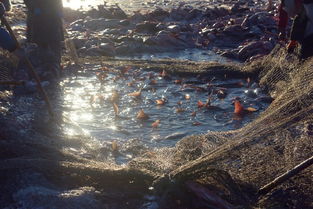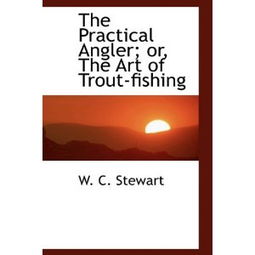Content:
Are you a seasoned big gun in the world of angling, or are you just starting out and looking to sharpen your fishing skills? Whether you're a seasoned pro or a beginner, mastering the art of fishing can be a rewarding and enjoyable experience. In this article, we'll dive into some essential tips and techniques to help you become a master angler, especially when it comes to mastering the art of fishing with the big guns.
Choose the Right Equipment
Before you even think about casting your line, it's essential to have the right equipment. Here are some key pieces of gear you'll need to get started:
a. Rod and reel: Choose a rod and reel that match the type of fish you're targeting. For instance, if you're fishing for bass, you'll want a rod with a medium to heavy power and a reel with a good drag system.
b. Line: Use the appropriate line for the fish you're targeting. Monofilament is a versatile choice, but you might want to use braided line for more sensitivity and strength.
c. Lures and bait: The type of lure or bait you use will depend on the fish you're targeting. For example, if you're fishing for trout, you'll want to use flies or small spinners, while bass anglers might prefer soft plastics or jigs.
Find the Perfect Spot
One of the most crucial aspects of fishing is finding the perfect spot. Here are some tips to help you locate the best fishing spots:
a. Research: Use online resources and local fishing forums to find out where the best spots are. Pay attention to reports from other anglers, as they can provide valuable information.
b. Look for signs: Observe the environment to find signs of fish activity. Look for areas with vegetation, rocks, or structures that fish might use as cover.
c. Timing: Fish tend to be more active during certain times of the day. For instance, they might be more active in the early morning or late evening.
Master the Art of Casting
Casting is a fundamental skill that every angler must master. Here are some tips to help you improve your casting technique:
a. Hold the rod correctly: Grip the rod with your dominant hand and place your other hand on the reel handle.
b. Learn the basics: Practice casting techniques such as the overhead cast, sidearm cast, and roll cast. Focus on maintaining a smooth and consistent motion.
c. Adjust your technique: If you're having trouble casting, adjust your grip, stance, or casting motion until you find a technique that works for you.
Develop Your Bait Presentation Skills

The way you present your bait or lure to the fish can make a big difference in your success. Here are some tips to help you improve your bait presentation:
a. Be patient: Fish may take some time to notice your bait, so be patient and allow your lure to sink and swim naturally.
b. Adjust your retrieve: Experiment with different retrieves, such as a slow and steady retrieve, a twitch-and-pause technique, or a fast retrieve.
c. Pay attention to the water: If the water is murky, you may need to use brighter or more vibrant colors, while clear water may require more subtle presentations.
Learn to Read the Water
Understanding the behavior of fish in different water conditions can help you become a more successful angler. Here are some tips to help you read the water:
a. Observe fish behavior: Pay attention to the way fish are moving and interacting with their environment. This can give you clues about their feeding patterns and preferences.
b. Analyze the bottom: Study the bottom structure to identify areas where fish might be holding. Look for signs of cover, such as rocks, vegetation, or debris.
c. Adapt to changing conditions: Be prepared to adjust your technique as the weather, water temperature, and other conditions change.
Stay Informed and Continuously Improve
Lastly, to become a master angler, it's essential to stay informed and continuously improve your skills. Here are some tips to help you on your journey:
a. Attend fishing clinics and workshops: These events can provide valuable insights and hands-on experience from experienced anglers.
b. Join a fishing club or community: Engaging with other anglers can help you stay up-to-date on the latest fishing techniques and tips.
c. Keep a fishing journal: Document your experiences, including what worked and what didn't. This can help you identify patterns and improve your skills over time.
In conclusion, mastering the art of fishing, especially when it comes to the big guns, requires a combination of the right equipment, knowledge of the perfect spot, skillful casting, and an understanding of fish behavior. By following these tips and continuously improving your skills, you'll be well on your way to becoming a master angler who can conquer any fishing challenge. Happy fishing!












